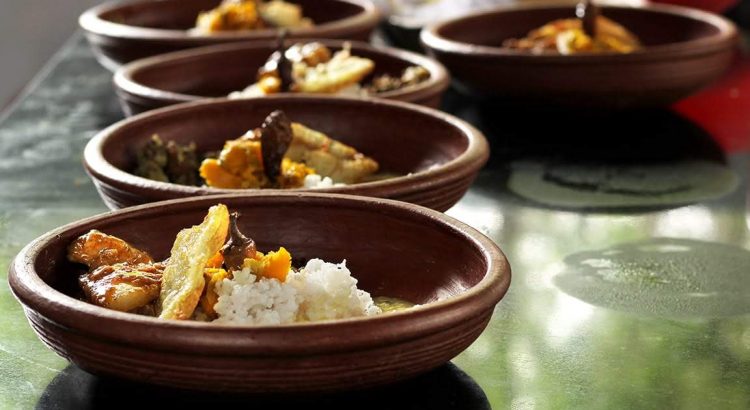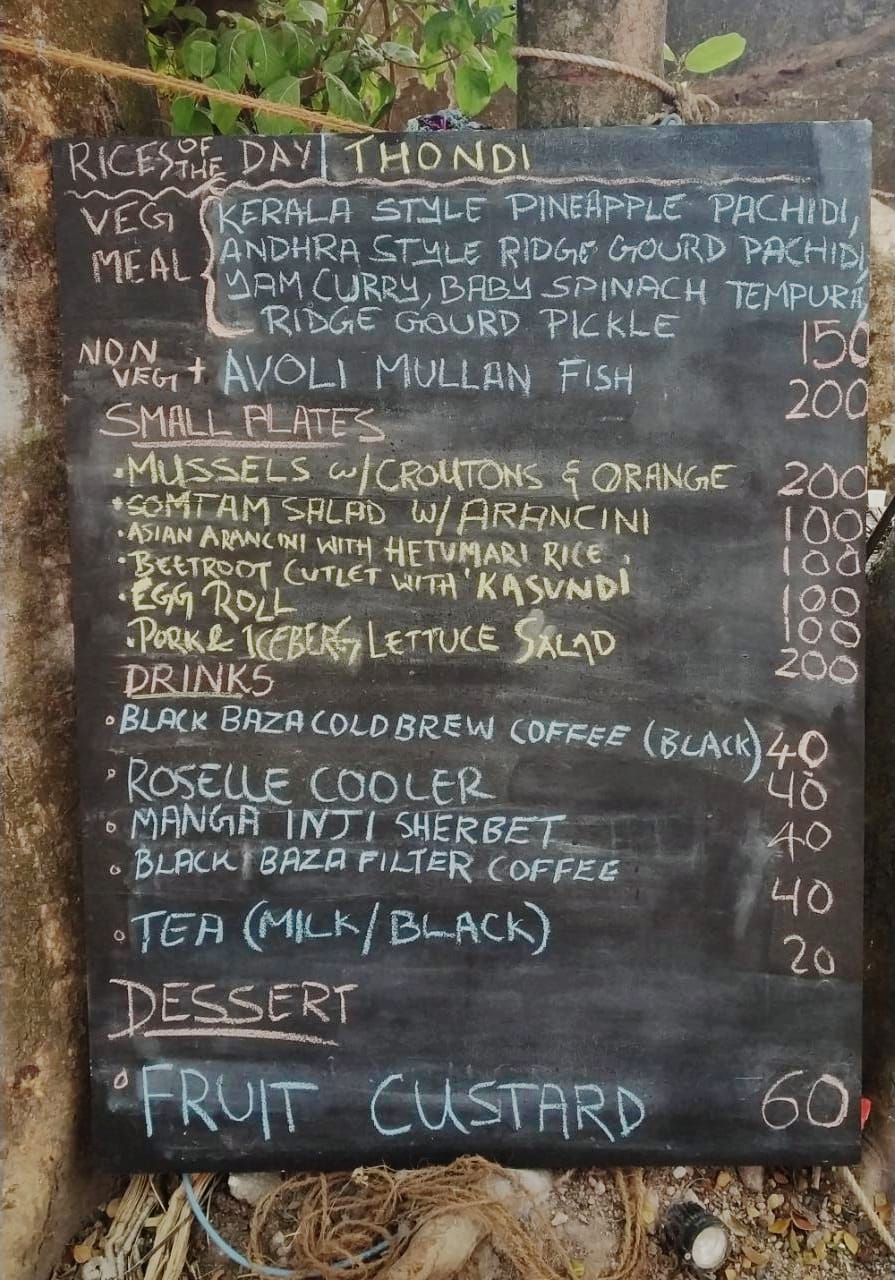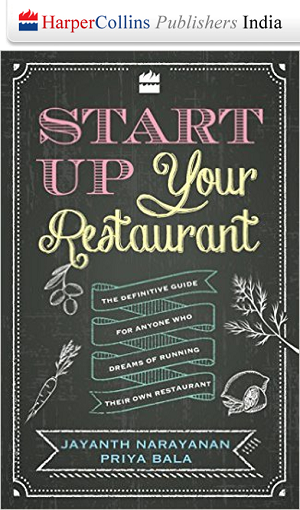
Cabral Yard, one of the performance hubs at the Kochi Muziris Biennale, is witnessing a food project at work that is both unique and impactful. Titled Edible Archives, it is one of the infra projects at the Biennale, and could well become a template for a restaurant of the future, one that celebrates the essence and tradition of Indian cuisine with a contemporary sensibility.
 The project is curated by the phenomenally talented Chef Anumitra Ghosh-Dastidar, most recently of Diva, and Prima Kurien, who has done much in her role as cook, caterer and author to bring Kerala cuisine to the fore. Their common interest in traditional food and indigenous produce sees them collaborating on this project which goes beyond merely cooking and serving food to visitors to the Biennale, which runs till the end of March.
The project is curated by the phenomenally talented Chef Anumitra Ghosh-Dastidar, most recently of Diva, and Prima Kurien, who has done much in her role as cook, caterer and author to bring Kerala cuisine to the fore. Their common interest in traditional food and indigenous produce sees them collaborating on this project which goes beyond merely cooking and serving food to visitors to the Biennale, which runs till the end of March.
The focus of this unique venture is rice, one of the most integral elements of traditional Indian food culture, the diversity of which has been diminishing rapidly since the 1960s. “Indigenous rice with its richness and variety of taste,
texture, colour, grown with traditional wisdom and techniques, with its cultural and religious significance, has made way for new, hybrid varieties. The diversity of rice we grew and ate is a symbol of the many possible ways of life and it has been replaced by an undesirable homogeneity,” says Anumitra who has spent several months traversing the country sourcing indigenous rice varieties being grown and preserved by small farmer communities. “With Edible Archives, we hope to document and celebrate that diversity by bringing it to a wider audience through a conceptual space, where chefs from across India are encouraged to experiment with heirloom rice varieties,” she says.
The core team of chefs includes Kiran Bhushi, a food anthropologist and cook, besides Anumitra and Prima. “We are showcasing several other chefs, with the aim of bringing reflection, politics and pleasure back into food,” says Anumitra, adding that they wish to refigure rice from accompaniment to dish, from object to subject and have mined their own edible archives as chefs, combining cultural and culinary traditions that revolve around rice.
The project is titled Edible Archives because all of us retain the experiences of the foods we’ve eaten, and they become a part of our being an edible archive we carry around in our bodies, memories and minds. At the Kochi-Muziris Biennale which began on December 12 and continues till March 31, 2019, each meal that’s cooked and served becomes an entry into the individual edible archives of the people eating it, as they experience the journey of the rice, and the splendid versatility of the ingredients accompanying it. “Thus, the edible archives will become a collective sensory catalogue that belongs to all the people involved in growing, sourcing, cooking and eating the meal,” explains Anumitra.
The meals served at the Edible Archives project revolve around a rice bowl, containing any one of various indigenous varieties of rice that have been specially sourced for this venture. The rice is accompanied by dishes using local, indigenous ingredients. But these are not be your everyday rice with curry slapped on. Chef Anumitra brings to each culinary creation at Edible Archives her eye for detail and her capacity for introducing sophistication into the simplest dish. This comes from her training in Japanese techniques, in Thai cuisine and her mastery over Italian food. “Every chef will relive food memories and tell stories at Edible Archives,” she says.










